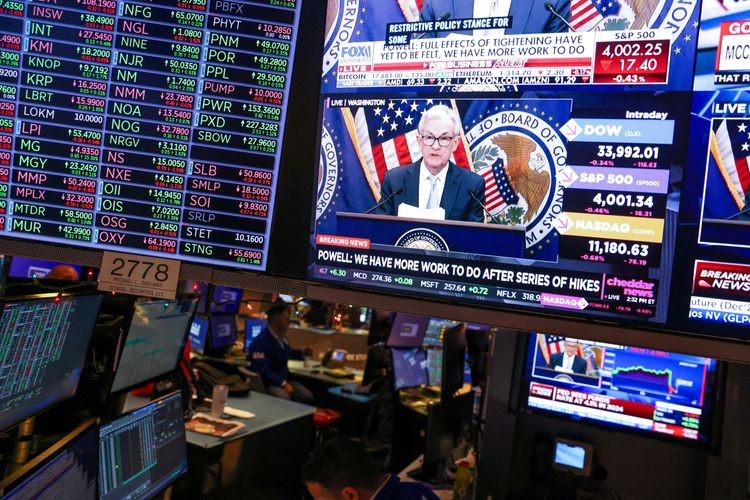
What are the most significant economic impacts of higher interest rates? Chief economists explain
The Forum’s Chief Economists Outlook found that the “prospects of a full-scale shift to monetary loosening are remote.” So what are the major economic impacts of higher interest rates?
The cycle of interest rate hikes is exected to slow throughout 2023.
Yet the World Economic Forum’s latest Chief Economists Outlook found that the “prospects of a full-scale shift to monetary loosening are remote.”
Three top economists provide insight into the most significant economic impacts of higher interest rates.
In 2022, as inflation spiralled upwards around the world, central banks began a cycle of interest rate hikes in an effort to lower prices.
The contractionary monetary policy mitigated inflation, but elevated interest rates have also caused various ripple effects throughout the global economy. This includes, for instance, recent distress in the banking sector.
As the World Economic Forum’s latest Chief Economists Outlook notes, “central banks now face a trade-off between, on the one hand, persisting with the pace of their tightening cycles until inflation is back down to more manageable levels, and on the other hand, doing anything that might trigger further distress in the financial sector.”
The report also found that property markets and financial businesses as well as sovereign and corporate debt sustainability remain large sources of concern with regards to high interest rates.
Of the chief economists surveyed in the report, 82% said they expect the pace of interest-rate raises to slow over the remainder of 2023. Nonetheless, the report notes that “even if there is a dovish shift in the stance of the world’s central banks, the prospects of a full-scale shift to monetary loosening are remote.”
So what will be the most significant financial and real economy impacts of higher interest rates? In the following statements, three leading chief economists give their insights.
Jérôme Jean Haegeli, Group Chief Economist, Managing Director, Swiss Re
“The interest rate hiking cycle is near its end, with only marginal rate rises still expected to come from central banks. Given still-high inflation, I personally disagree with US bond market pricing suggesting that policy rates may be cut later this year.
“Over the long term, higher interest rates are positive for financial markets, the real economy, and for the global re/insurance industry. Finally, risk free rates are not return free – and we have finally exited the negative interest rate era.
“Japan is now the outlier, but here too I expect the Bank of Japan to move sooner rather than later, supporting a higher-for-longer global interest rate environment. For the real economy, higher interest rates mean higher economic returns and this should revive investment into areas such as sustainable infrastructure. We need more investment into the real economy, to make economies globally more resilient against shocks. The resilience gap needs to narrow.”
Source : [What are the most significant economic impacts of higher interest rates? Chief economists explain](www.weforum.org/agenda/2023/05/growth-summit-significant-economic-impacts-higher-interest-rates-chief-economists/) by videos@weforum.org (World Economic Forum) - World Economic Forum by videos@weforum.org (World Economic Forum) / May 02, 2023